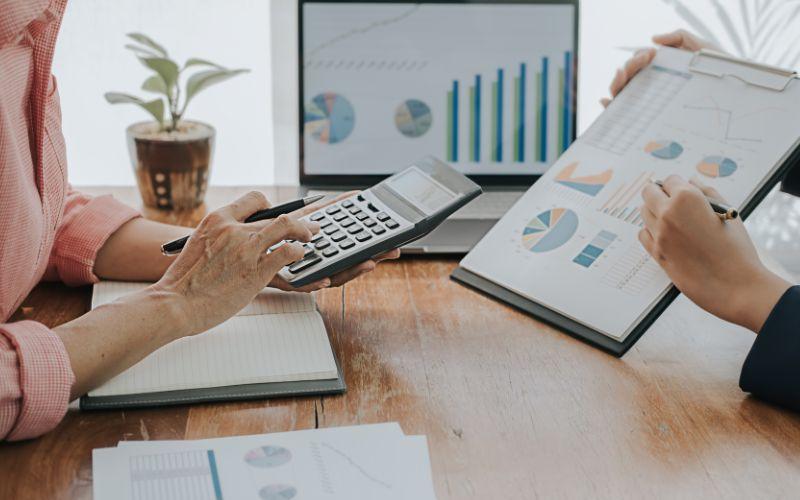Monitoring sales, inventory, and customer information has now become more crucial than ever in the fast-paced world of retail. Whether big or small and local or global, all kinds of retailers have slowly but surely evolved from the manual system of dealing with business processes every day because it has been tiring, confusing, and full of mistakes. Billing software is where it comes in. It is an intelligent digital tool that strands all billing efforts, payment processing, and records into one place for retail businesses. As customer expectations grow in terms of speed and accuracy, having modern billing software will give the store that edge to stay ahead in the market.
Billing software does much more than print receipts; it can track sales, offer discounts, calculate taxes, and even monitor stock levels. With a strong billing system, shopkeepers can save time, avoid human error, and improve customer service. Many of today’s software also allows cloud backup, real-time accessibility to data, and an easy user interface. They have it all so that owners can make the performance check of their stores at anytime and anywhere. Running and growing retail businesses will not have an option of using billing software-alone. Conversion to this mode of billing has become a smart business decision.
Here are some of the benefits of using billing software for retail businesses.
1. Enhancing accuracy in transaction:
Billing software allows retailers to reap high Transactions accuracy. It reduces manual errors by utilizing and depending on handwritten invoices. Auto-calculation of taxes, discounts, and totals gives the retailer confidence because at the end, the correct amounts are reflected. For customers, this means that he or she will experience smooth service provision and avoid the problems related to false charges.
2. Time Saver and Efficient
In the case of manual billing, it is a time consuming and rather boring practice to carry out especially in businesses whose transactions are very huge. Each task most invoice generation and payments tracking is automated, allowing the faster transaction with billing software. This means that the time spent on such activity now will be channelized by employees towards any other important base of work such as customer service, stock management, etc.
3. Simplified Record Keeping
There is a lot of financial data that is stored and accessed easily by a retail business. It becomes easy with software because it keeps all the invoices and transactions in digital formats. Searching for the records now becomes easy and does not spend much time through searching paper files. Besides, reports are also generated with sales, returns, and payment history, which make it much easier for an assessment of the business performances and tax filing.
4. Enhanced Customer Experience
A retail customer expects the checkout procedure to be quick and efficient. Billings software makes the transaction swifter than those without it. This can be resolved by providing professional invoices and receipts by email or printing. All these would ensure that the customer’s shopping experience is enhanced and promotes customer loyalty.
5. Better Inventory Management
A good number of billing software tend to integrate well with the inventory management system. This gives the business a reference point in measuring the actual number of items sold on a day since it has the power to discern their status on stock. Factory recording of sales data automatically updates changes in inventory levels showing a clearer picture of stocks and their future purchase planning.
6. Streamlining tax compliance
Tax compliance has been a cause of concern for retail businesses, and billing software can assist them by automatically calculating the correct sales tax for each transaction according to the location of the seller and the type of product sold. The software also stores different tax rates for different areas to help businesses better manage their sales across multiple locations. And then, during tax time, reports can easily be generated by the software to reduce the hassle of filing returns.
7. Customization of Invoices and Reports
Billing software allows a lot of customization in terms of invoices and reports. Retailers can customize their invoices in the template for each presentation of their branding, which includes logos and payment terms, and on some critical information. Furthermore, a business can customize reports that allow monitoring of defined data points like sales performance, product categories, or payment history, which become useful insights in decision-making and business growth.
Conclusion
From the above discussion, the advantages of billing software are lucid and well-spelt-out benefits for retail enterprises. It speeds up, cleans, and brings precision to day-to-day operations. By reducing the chance of errors and enabling organization in the store owner’s stand, it brings peace and better control over the business. Such software also saves a good amount of money by reducing the need for supernumerary manpower and paperwork in the long run. Retail shops would be able to focus more on pleasing their customers and less on managing paperwork thanks to features such as automated tax calculations, easy invoice creation, and inventory-tracking abilities.
In a world where technology is going to be the root of all business success, avoiding digitalization leaves retail stores out cold. Billing software, thus, is not confined to the big businesses; it is for the littlest of them. It helps the business grow faster, make better choices, and attend to customers more professionally. From saving time to increasing accuracy and better reporting, billing software is indeed wise investments for any retail business that wants to make a difference in today’s very cutthroat markets. Now is the time for retail store owners to switch to smart billing systems and take their business to the next level.
